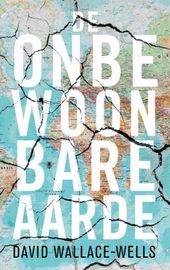
The Uninhabitable Earth
David Wallace-Wells does not call himself a climate activist, nor even a lover of nature. He lived his life in the complacency that most inhabitants of the Western world share. Until he started collecting stories of climate change: ‘a group of Arctic scientists trapped when melting ice isolated them on an island populated also by a group of polar bears; a Russian boy killed by anthrax released from a thawing reindeer carcass, trapped in permafrost for many decades.’ If they sound like hyperbolic visions of a biblical apocalypse, Wallace-Wells argues in his much-acclaimed The Uninhabitable Earth, that’s because we are generating one, at full speed.
On the occasion of the appearance of the Dutch translation of that book, De onbewoonbare aarde, SPUI25 and Room for Discussion invite the author for a debate on the many near-unbearable questions he raises. How should we discuss climate change, and rouse populations towards action? Where should we, in his eyes, find the hope and motivation to act towards an inhabitable future? And is his writing ‘irresponsible’, or exactly the opposite?
Wallace Wells’ great shock came, he described in The Guardian, on finding out that more than half of the carbon emitted into the atmosphere from burning fossil fuels was emitted in the past 25 years. ‘This means we have burned more fossil fuels since the UN established the Intergovernmental Panel on Climate Change (IPCC) than in all of the centuries before – so we have done more damage knowingly than we ever managed in ignorance. That is a horrifying fact. It also means we are engineering our own devastation practically in real time.’
In an interview with Room for Discussion and the audience, Wallace Wells will discuss reactions to his statements as ‘hyperbolic’ and exaggerated’. Is his prose, described as ‘the language of theology and mythology’, an activator of complacent audiences and stir them to action? Or will it cause a further numbness to apocalyptic visions in media eager for sensationalism, clicks and traffic? Are things, as his instantly notorious opening line has it, much worse than we think?
About the speakers
David Wallace Wells is a historian and author, writing often on climate change and its impact in the near future. His work has been published in The Paris Review, Wired, Harper’s, Newsweek and New York magazine, for which he is deputy editor.
Elmer Hoogland is a student enrolled in the PPLE program at the University of Amsterdam. He is currently serving as an interviewer for the interview platform of the University of Amsterdam, Room for Discussion. Here, he has interviewed Johann Dietrich Woner, Director of the ESA and Pete Hoekstra; The American Ambassador to the Netherlands, among others, often incorporating the angle of climate responsibility in his conversations with notable guests.


:rgb(-15)

:rgb(-25)
